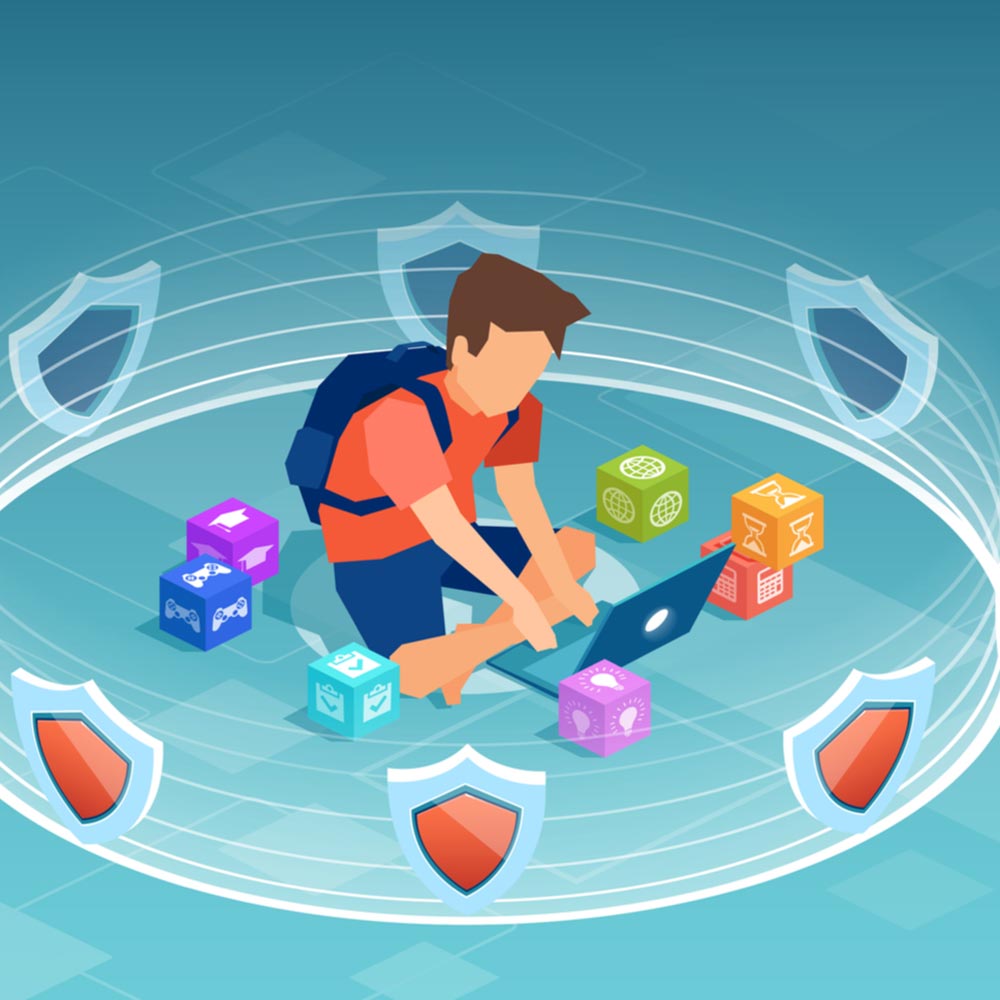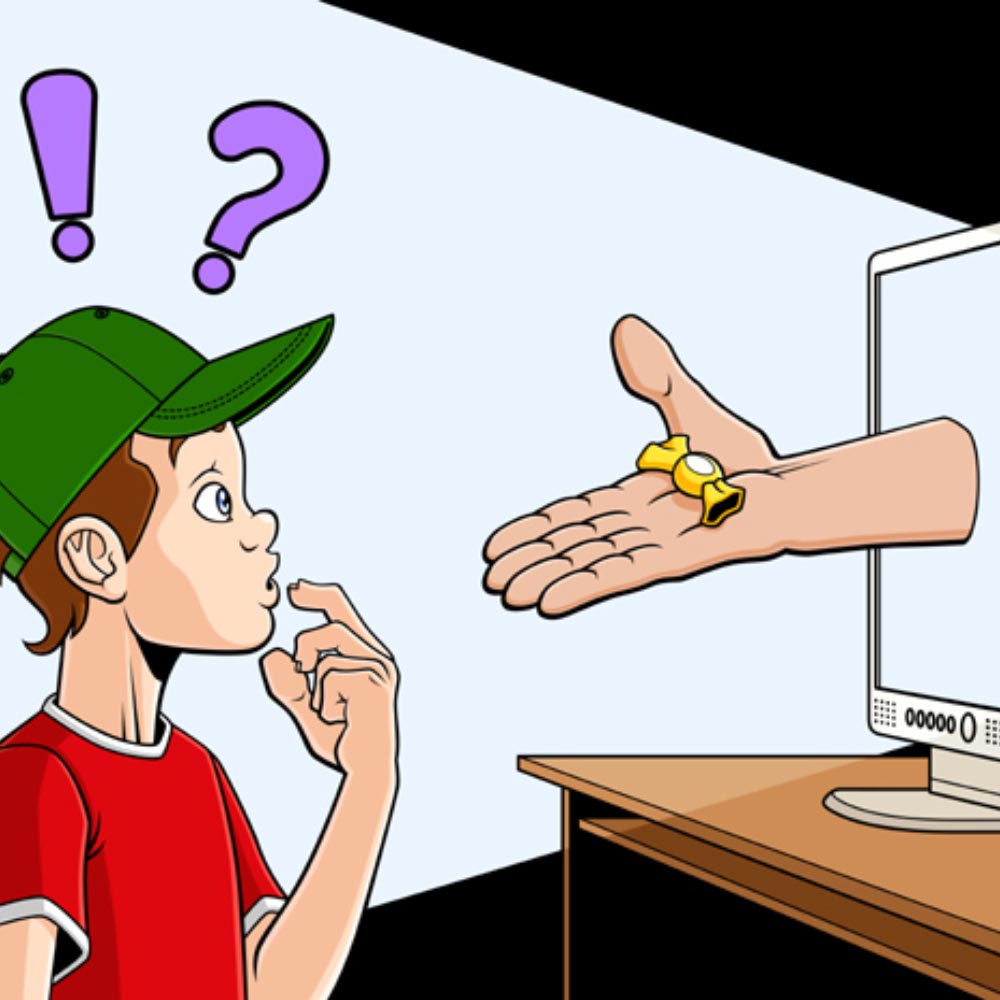While growing up, our parents always warned us of stranger danger because as kids, we tend to take things at face value. We see the best in people, trust them and believe that there is no reason anyone would intend to harm us, let alone someone we’ve not wronged. Today, the threat from the unknown often looms large over the internet.
In this day and age, when everything has become digital, including learning, how do we protect our children from cyber threats and cybercrimes? How do we ensure they don’t click on a bait laid out there that ends up putting their security at risk?
The Blue Whale Challenge, a sinister online game that forced several teens to commit suicide, is one of the spine-chilling examples of cyberbullying.
As the internet continues to expand and the world becomes smaller, our data security and privacy become more difficult to protect. The kind of cybercrimes and cyberbullying that can happen may vary, but without clear instruction, our children become more susceptible to the many threats available digitally.
Here are a few things you can do to protect your child from cyber threats.
Keep webcams covered
Both our laptops and phones have webcams that are often used for virtual communication. While its usage turned out to be a great boon, especially during the pandemic, it comes with its own set of security threats. Vicky Rana, a software engineer explains, “Any webcam can be hacked into for spying and blackmail, thus breaching our privacy. Hackers can gain access to your webcam and switch it on remotely through malicious software, and you won’t even be aware that you’re being watched.”
“Downloading content from sites you don’t trust, clicking on links that promise you things that are too good to be true, remote tech support from unreliable service providers, and out of date software makes your system vulnerable to hacking,” Rana explains.
To prevent this, ensure your child doesn’t click on any pop-ups, links, or emails from unknown senders without consulting an adult. It is also your job to ensure your system is updated and you vet the tech support providers before giving them access to your laptop or phone.
Password protection
Sometimes, it may feel immensely annoying when a particular website prompt says you need to strengthen your password. However, password theft is one of the most common ways our data is stolen.
Rana explains, “Password hygiene is extremely important to protect yourself from hackers that are looking for easy access to your IT resources. The stronger your password is, the more barriers there are for the hacker to overcome.”
“Avoid storing your passwords on clouds. Remember that any data that is stored online is hackable. Also, don’t use the same or recycled passwords everywhere. Many people use the same password across the sites they register on. However, a hacker may be able to crack it on a low-security website and then have access to other sites that are highly crucial. As a minimum, at least, have a different password for Gmail and online banking,” Rana advises. He further adds that to make our accounts more secure, we must opt for multistep authentication. You can save all your passwords in one file and then password protect it, so you have to remember just one.

Warn your child about apps and app permissions
Your child may find an interesting game on the app store or find an app that seems to be very useful. However, as easy it is to install just any app, it is not safe to do so blindly. “Avoid installing apps from unknown sources and when you do, be vary of which permissions you are giving it. Many hackers use these apps to gain access to your personal data, which can be very dangerous,” Rana says. Tell your child they can only download an app with adult supervision.
Use cloud data storage wisely
“Whether to opt for cloud storage or not depends upon the cloud service provider and how sustainable their cloud infrastructure is. But, in the end, you are completely dependent on the strength of the cloud provider and trusting their system to protect your data,” Rana explains. “If your child’s phone is taking backups and storing that data on the cloud, ensure that it doesn’t store personal data like passwords, personal info, sensitive pics, etc,” Rana advises.
Often parents end up letting their child use their email and their cloud. However, it’s advisable to make a separate account for your child so if you have more sensitive information on yours, it doesn’t get compromised too.

Monitor their gaming activities
While online gaming is fun and helps children hone their problem-solving skills, it can also be a dangerous space for many reasons. “Phishing exists in online gaming too. Do not click on any link from a person you meet online. Many developers also use fake game updates to lure you in. Also, many cybercriminals target in-game resources, strong game characters, paid game accounts, or stored debit/credit card details,” Rana points out.
“The solution is simple. Create a strong password and do not save your credit card details on your account. Also, ensure your child doesn’t click on any links, pop-ups, and too-good-to-be-true deals,” Rana suggests.
Online gaming can also be a breeding ground for bullies and trolls. Getting aggressive and abusive is not uncommon when playing games online with a plethora of anonymous individuals. Stranger danger applies to anyone you meet online. Ensure your child knows better than giving out any personal or sensitive information to someone they met online. Also, let them know they must inform you if anyone is being aggressive towards them. Instead of indulging in a conversation, they must simply block and report an abusive user.
Also Read: Festivities Galore: Why It Is Important For Children To Embrace Cultural Diversity